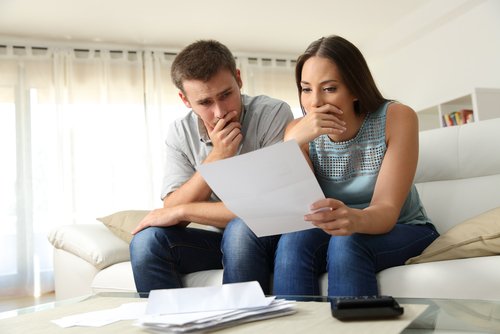One of the greatest fears for people filing for bankruptcy is whether they will lose their home or other assets that they have worked hard to obtain. Bankruptcy is not meant to strip you of everything you own. Its function is to get you out from under overwhelming debt and back on track to fiscal health.
What is Chapter 7 bankruptcy?
Chapter 7 is often referred to as straight or liquidation bankruptcy. This type of discharge is for people with minimal or no assets, who do not possess the means to enter a monthly repayment plan, like the one required in Chapter 13. Chapter 7 filing puts an automatic stay into effect that stops creditors from harassing you, garnishing your wages or selling your property.
What happens once I start a Chapter 7 bankruptcy filing?
The bankruptcy court will appoint a Trustee whose task is to determine if you have non-exempt assets that they could liquidate to repay some of your debt. You must list all of your property, current income, and monthly living expenses for the Trustee to review. They then determine if you have non-exempt assets according to State and Federal guidelines.
What are exempt assets?
The bankruptcy law determines what assets you can claim as exempt. Because exemptions vary from state to state, consult with bankruptcy attorneys like Sawin & Shea LLC to determine the assets you may be able to keep in Indiana.
Types of Exempt Assets in Indiana
Homestead Exemption – We can help each person keep up to $19,300.00 in equity (home value minus liens such as your mortgage) in a primary residence.
- Tangible Property – We can help each person keep $10,250.00 in equity in personal property such as your household goods, furniture, clothes, jewelry, and equity in motor vehicles.
- Intangible property – We can help each person keep up to $400.00 of cash or cash equivalents including cash on hand, money on bank accounts, and tax refunds.
- Shared Property – A partner’s interest in specific partnership property, as per the Uniform Partnership Act.
- Life insurance policies – Those policies with the debtor, spouse, children, dependent relatives or any creditor as a beneficiary.
- Interest in a Qualified Retirement Plan – We can generally exempt 100% of the value of IRAs, 401(k)s, other retirement plans
- Unemployment Compensation Benefits, Workmen’s Compensation, and Social Security – We can generally exempt 100% of these items.
- Tenancy by the Entirety – When a couple owns a home together but the debt is solely the responsibility of one person, the home is considered exempt. Most couples incur debt together so this is rare.
- Joint Bankruptcy Exemption – Married couples filing a joint bankruptcy in Indiana may “double” the exemption amount, meaning that each spouse may claim the full exemption amount for any property in which the spouse has an interest.
Can I file for Chapter 13 once I am through the Chapter 7 discharge?
The law does not prevent anyone from filing for Chapter 13 bankruptcy immediately after filing for Chapter 7. Some courts even allow the filing of Chapter 13 before the Chapter 7 case is closed.
Benefits of Filing for Chapter 13 after Chapter 7 Bankruptcy
- Saving assets from recovery by secured creditors – Even after saving an asset as an exemption, it can be threatened by a secured interest (such as mortgage debt/arrears that was not discharged under Chapter 7. Filing for Chapter 13 provides additional time to clear such mortgage arrears or repay the secured debts that attached to the property.
- Paying debts or protection from debts not discharged in a Chapter 7
- Cramdown on the second mortgage – To cram down on a second mortgage, the debtor initiates an adversary proceeding seeking to strip off the second mortgage. Some courts allow the unsecured second mortgage to be completely removed through Chapter 13 bankruptcy.
- Part of a larger game plan – Filing for Chapter 13 (commonly referred to as a Chapter 20) immediately following completion of Chapter 7 can be part of a larger strategy to reduce unsecured debt and to make more of the debtor’s income is available to pay arrearage or non-dischargeable debt.
Sawin & Shea LLC – Indianapolis Bankruptcy Attorneys
Bankruptcy is not an end but a new beginning. Find out how you can hold onto your home and other assets while going through Chapter 7. The Indiana bankruptcy attorneys at Sawin & Shea LLC have years of experience representing good people in bad financial situations caused by massive debt. Please do not hesitate to call us today at 317-759-1483 for a free consultation. We are ready to help.



